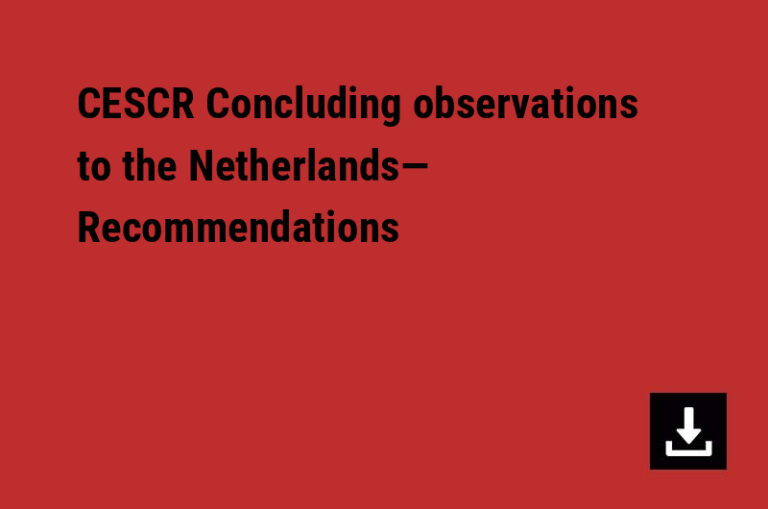Source: NewCities
Kirsten McRae, Communications & Marketing Manager, The Shift
It’s in the news every day—people are forced to flee their homes in growing numbers due to circumstances beyond their control. According to the World Economic Forum, the number of people fleeing their homes has doubled in the last ten years and it’s predicted that more than one billion people will be displaced by environmental change, conflict, and civil unrest by the year 2050.
Developing countries host 85% of refugees, while wealthy nations create policies designed to deter asylum seekers by making the process arduous and risky. And those who do receive refugee status in wealthy western countries are entering in the midst of a housing and homelessness crisis, as well as an increase in anti-refugee sentiment.
The use of housing as a financial asset, known as financialization, prioritizes returns on investment and leaves homes vacant while people languish in the street. Residential real estate is worth over $260 trillion USD, while perversely, homelessness is on the rise in cities around the world. Every year, it’s estimated that nearly 15 million people are forcibly evicted, 150 million people are living in homelessness, and 1.8 billion people are inadequately housed. The average price of an apartment in Seoul increased by 90% between 2017-2021, and nominal housing prices in the U.S. are 30% above their previous peak in the early 2000s. Navigating this housing crisis is fraught, even for well-established residents with a support system and reliable employment, and refugees often arrive with neither.
Migrants in transit are often compelled to live in precarious housing situations that put them at risk of forced evictions.Once settled, these same people are more likely to end up in grossly inadequate housing while facing discrimination and economic marginalization. Governments are responsible to ensure the equal enjoyment of the right to housing by all, without discrimination and regardless of documentation.
Fully realizing the human right to adequate housing requires a comprehensive plan, especially for asylum seekers and refugees. One that involves coordinated efforts across all levels of government in policymaking, budget allocation, and legislation. Currently, a disconnect between national and subnational governments prevents the full realization of the right to housing, even in places where it is enshrined in domestic law. Canada’s National Housing Strategy Act, adopted in 2019, commits the nation to fulfill the right to housing thereby ending chronic homelessness. However, the federal government has yet to consult with subnational governments on how to carry this out at the local level.
Governance structures and the distribution of responsibility are not a problem unique to North America. Regional and municipal governments are often better positioned to understand and address housing concerns, but political decisions around housing are typically made at the federal level. The Barcelona Right to Housing Plan (2016-2025) acknowledges that disconnects between regional and national governments stymie efforts to realize the right to housing in the city and outline the need for greater municipal tools. The plan also calls upon regional and federal governments to properly govern the regulatory framework that affects housing—or delegate their powers to the city.
These disconnects are already creating real problems for refugees in Canada, as many face incredible difficulties finding and paying for decent housing. Once newcomers age out of the federal Resettlement Assistance Program, they must learn to navigate municipal and provincial governments should they need to apply for further resettlement support. What’s more, if there are complications during the resettlement process, refugees can spend years caught up in the system without legal permission to work or sign a lease. Often, forcing them to stay in severely inadequate hotel shelters for years while waiting for their applications to be processed.
A key part of this restructuring is the need for federal governments to regulate the financialization of housing to prevent unfettered land and property speculation that results in escalating land values.
Currently, 171 States recognize the human right to housing. As such, these countries have acknowledged their obligations to provide that right, requiring governments to institute policies that prioritize social health and wellbeing over profit. This doesn’t mean there is no place for institutional investors, but rather that their participation in the provision of housing must be compliant with international human rights law and subject to human rights oversight and accountability.
Acknowledging the need for greater government cooperation and a need to prioritize health and wellbeing over profit still leaves us with the question of how we design policies and programs that effectively prevent homelessness, especially for vulnerable populations like refugees. Improvement in cooperation cannot be accomplished by making small changes to our existing model – it requires significant restructuring that centers human rights.
One of the key guidelines for implementing the right to housing is the meaningful participation of those affected in the design, implementation, and monitoring of housing policies and decisions. While the application of these guidelines must be tailored to the specific needs of refugees, the foundation remains the same: those most affected—with lived experience of homelessness—need to be engaged and listened to. No one has a better understanding of homelessness and the necessary support to prevent it, than someone with lived experience. The same remains true with refugees and their experiences navigating resettlement.
Meaningful participation carried out through the human rights framework will naturally lead to long-term housing design that better meets the needs of refugees and centers the concepts of care and wellbeing. Culturally adequate housing, one of the seven key criteria of the human right to housing, would also contribute to immigrants’ sense of belonging and help ease the difficult transition to a new country. The form these long-term, culturally adequate housing solutions take will therefore differ based on each city’s unique context and resources.
As we seek to close the gap between government commitments to human rights law and existing policies and programs, cooperation amongst the various sectors involved in resettlement is imperative. City governments must call upon the federal government to restructure these systems, giving them access to the resources and power required to swiftly respond to the needs of their constituents. Failure to do so will continue to exacerbate the housing crisis, while subjecting people who have already suffered the unimaginable to inhumane treatment at the hands of those meant to provide support in a time of great need.



